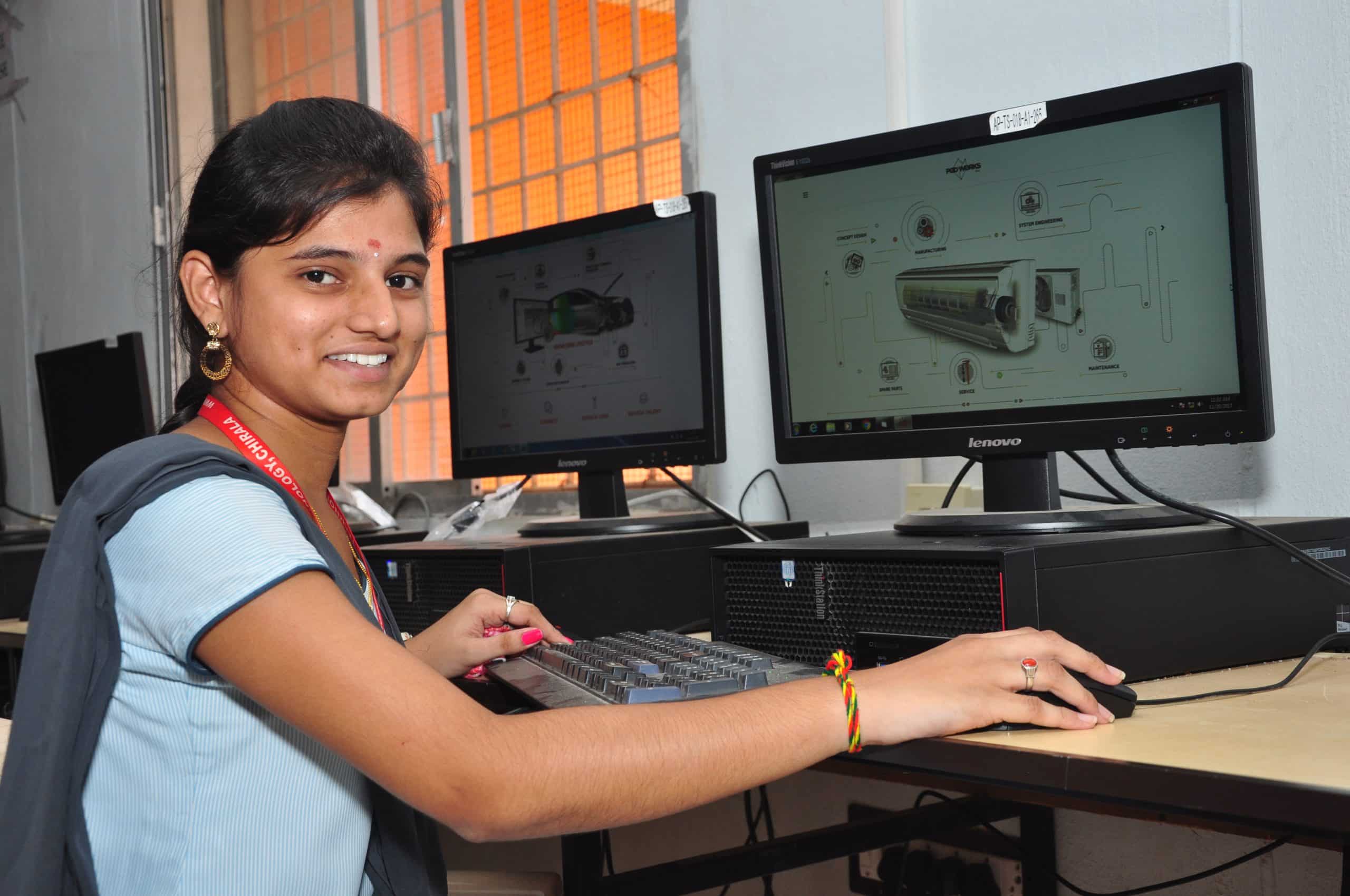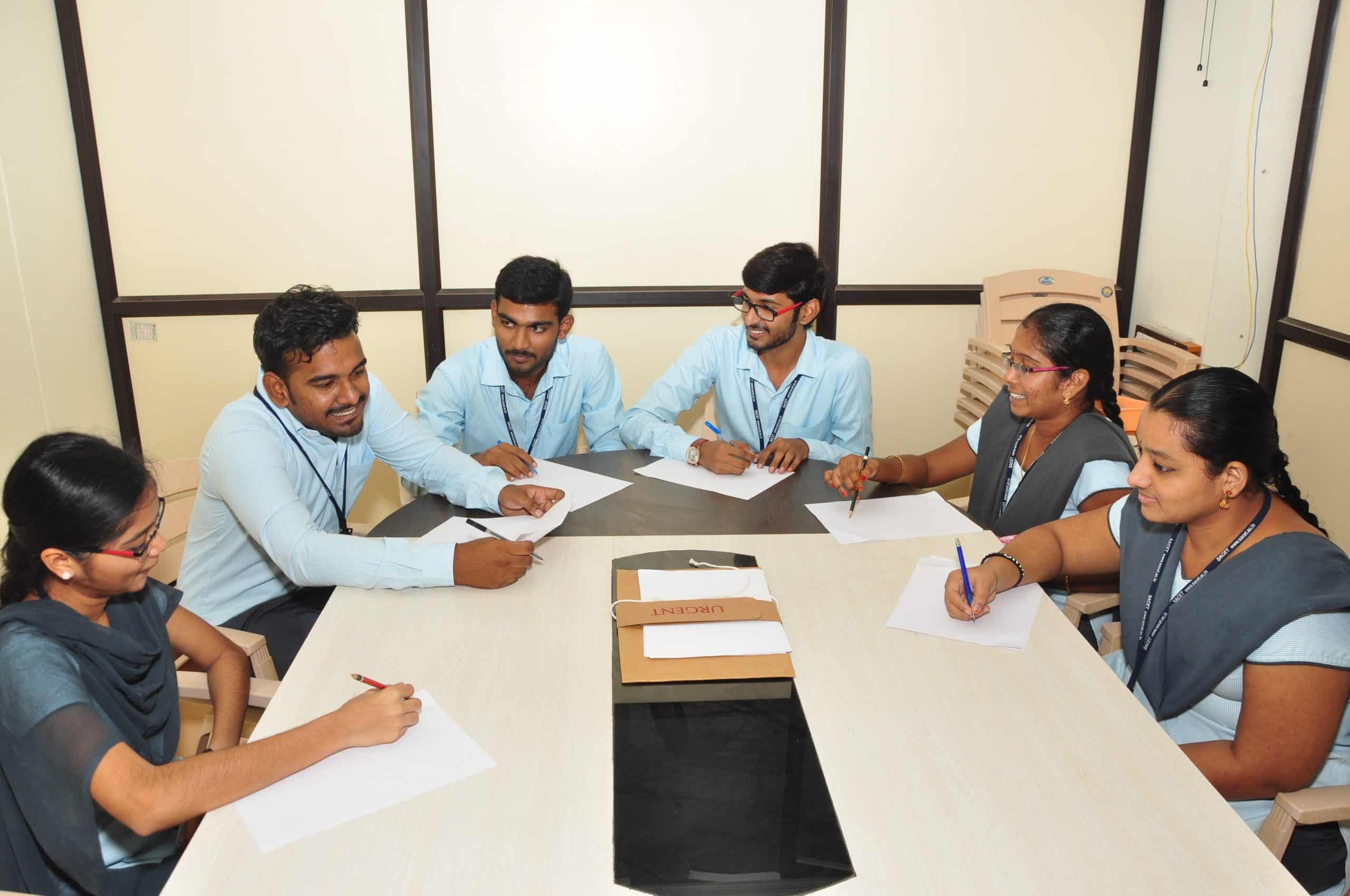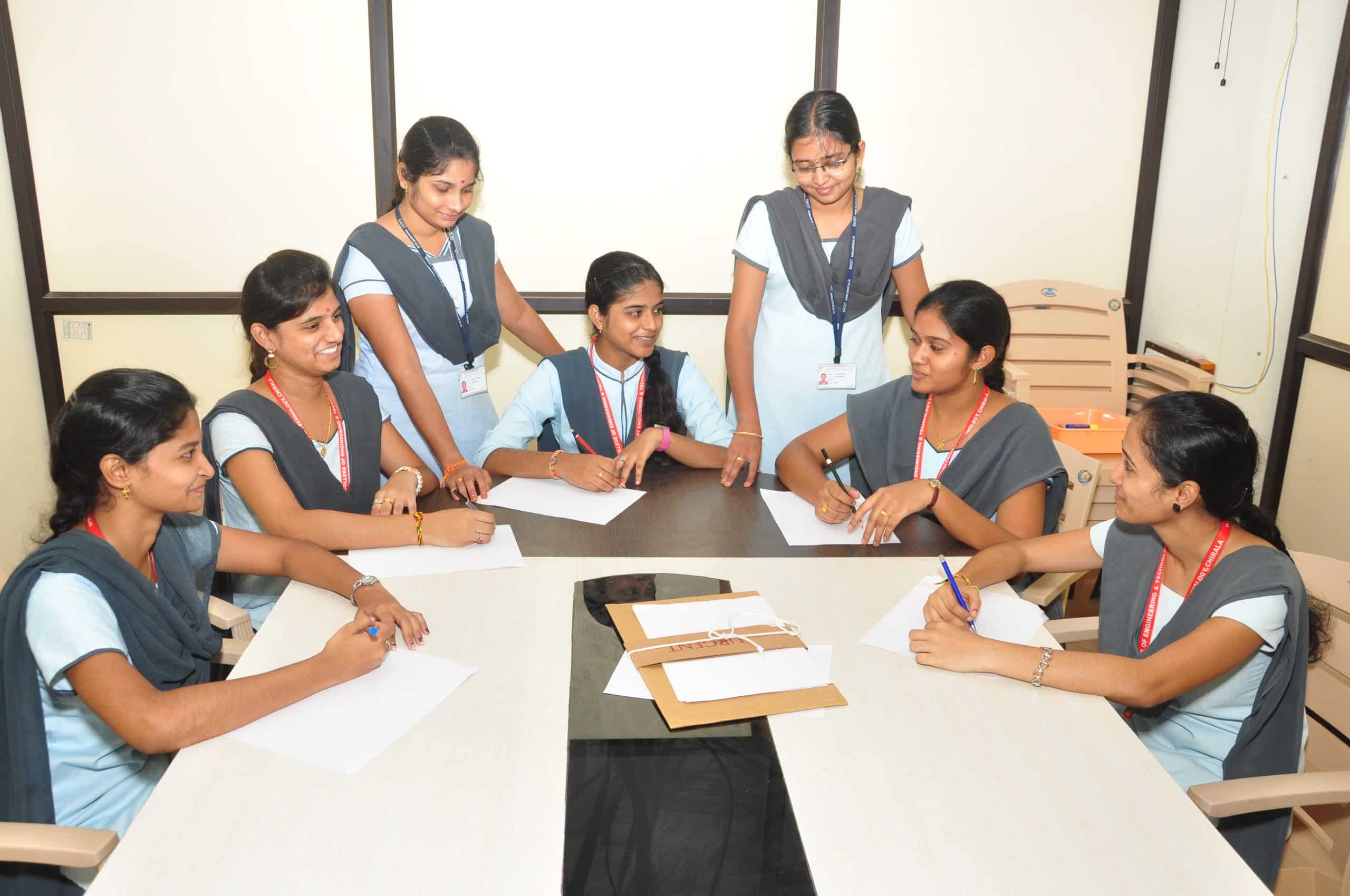
ARTIFICIAL INTELLIGENCE & MACHINE LEARNING Simulation of human intelligence Good at detail-oriented jobs. Reduced time for data-heavy tasks Saves labor and increases productivity
ABOUT THE DEPARTMENT
AI and Machine Learning jobs have jumped by almost 75 percent over the past four years and are poised to keep growing.
Similar to data analysts, statisticians, and business analysts, AI is one of the fastest growing, in-demand fields and lucrative career choices.
A study by Oxford University and Yale University indicates that AI will outperform humans in many ways and will automate all human jobs in the next 120 years. By 2024, AI will be better than humans at translation, will write bestselling books by 2049, and will perform surgeries by 2053



ABOUT HEAD OF THE DEPARTMENT

Dr Hari Kishan Chapala has received Ph.D in Computer Science and Engineering in 2013 from Acharya Nagarjuna University, Guntur, Andhra Pradesh. He is working as Professor and Head in CSE- AI & ML. He has a total of 23 years of experience in Teaching and Administration.He is ratified by JNTUK, Kakinada in 2016. He has authored and published more than 10 research papers in reputed journals. He is nominated as Q-Leader by APSCHE. He is a peer reviewer and Editorial Board member for several Journals.
VISION
International relevance and excellence in AI research, education and innovation for Indian universities and research institutions towards serving the greater cause of society.
MISSION
- To develop professionals who are skilled in the area of Artificial Intelligence and Machine Learning.
- To Become a national access point for AI competence and infrastructure.
- Developing problem solving and analytical skills with sound knowledge in basic Research and Development activities.
- To apply new optimize advanced methods in high performance computing hardware and software.
- PROGRAM EDUCATIONAL OBJECTIVES (PEOs):
- PROGRAM SPECIFIC OUTCOMES (PSOs)
- PROGRAM OUTCOMES (POs)
- BOS
PEO 1:To make students to excel in Artificial Intelligence and Machine Learning with the technical skills and competency to carry out research and address basic needs of the society.
PEO 2: Graduates of the program will have a globally competent professional career in Artificial Intelligence and Machine Learning domain.
PEO 3: Graduates of the program will have entrepreneur skills with a lifelong learning attitude in order to support the economy growth of the country.
PSO 1: Develop models in Machine learning, Deep learning, Data Science and Bigdata technologies, using acquired AI knowledge and modern tools.
PSO 2:
Formulate solutions for interdisciplinary problems through acquired programming knowledge in the respective domains complying with real-time constraints.
PO1: Engineering knowledge
Apply the knowledge of mathematics, science, Engineering fundamentals, and an Engineering specialization to the solution of complex Engineering problems in Computer Engineering.
PO2: Problem analysis
Identify, formulate, review research literature, and analyze complex Engineering problems in Computer Engineering reaching substantiated conclusions using first principles of mathematics, natural sciences, and Engineering sciences.
PO3: Design / Development of Solutions
Design solutions for complex Engineering problems and design system components or processes of Computer Engineering that meet the specified needs with appropriate consideration for the public health and safety, and the cultural, societal, and Environmental considerations.
PO4: Conduct Investigations of Complex Problems
Use research based knowledge and research methods including design of experiments in Computer Engineering, analysis and interpretation of data, and synthesis of the information to provide valid conclusions.
PO5: Modern Tool Usage
Create, select, and apply appropriate techniques, resources, and modern Engineering and IT tools including prediction and modeling to complex Engineering activities in Computer Engineering with an understanding of the limitations.
PO6: The Engineer and Society
Apply reasoning informed by the contextual knowledge to assess societal, health, safety, legal and cultural issues and the consequent responsibilities relevant to the professional engineering practice in Computer Engineering.
PO7: Environment and Sustainability
Understand the impact of the professional Engineering solutions of Computer Engineering in societal and Environmental contexts, demonstrate the knowledge of, and need for sustainable development.
PO8: Ethics
Apply ethical principles and commit to professional ethics, responsibilities, and norms of the Engineering practice.
PO9: Individual and Team Work
Function effectively as an individual, and as a member or leader in diverse teams, and in multidisciplinary settings.
PO10: Communication Skills
Communicate effectively on complex Engineering activities with the Engineering community and with society, such as, being able to comprehend and write effective reports and design documentation, make effective presentations, and give and receive clear instructions.
PO11: Project Management and Finance
Demonstrate knowledge and understanding of the Engineering and management principles and apply these to one’s own work, as a member and leader in a team, to manage projects and in multidisciplinary Environments.
PO12: Life-long Learning
Recognize the need for, and have the preparation and ability to engage in independent and life-long learning in the broadest context of technological change.



